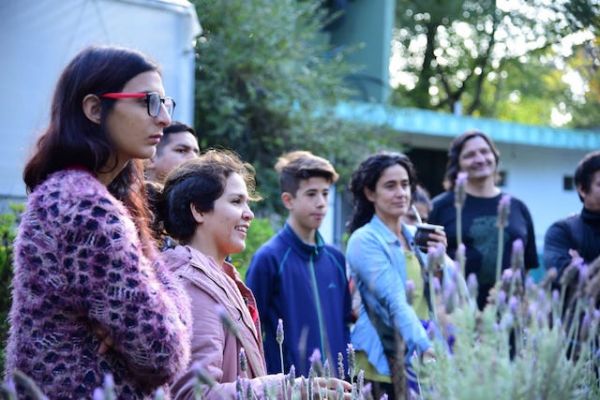Local networks
We created a monthly assembly area of Red de Huertas that allows us to meet and debate among those who, within the same municipality, work the land. During the first meeting in the month of May, we asked ourselves what was the reason why in the last few years so many organizations started to worry about food and to work in spaces of educational or self-consumption gardens.
On the one hand, the answers made visible the concerns that the Argentine people are experiencing today, we are not able to access food because of its high costs, and we also do not receive healthy food because it contains agrotoxics and we do not know who grows the food we eat every day. On the other hand, many answers focused on the importance of retaking the relationship and balance with nature, working together to learn to cultivate our own food and recover the knowledge of our native peoples that we have forgotten.
At Pacheco Community we believe that this instance is essential for the local development of a network that allows us to supply food from our gardens, direct purchases from producers and organization of neighborhood fairs where we can offer healthy food while generating awareness in the neighbors.
Agroindustrial model. Agrarian reform.
In addition to the instances of working in the land and local networks of supply, exchange and awareness, Pacheco Community participates in a space of reflection and construction. This space questions the agro-industrial model that contaminates, poisons and destroys natural ecosystems. We join the Agrarian Forum that brings together the periurban farmers that supply the cities and organizations that fight for the transformation of this model.
From this assembly, we claimed and generate proposals that aim to reach government officials. We demand the transformation of this agroindustrial model of exports, as well as the economic and technical assistance to small producers. In Argentina,90% of soy, wheat and corn crops are exported and are used by other countries to feed livestock and produce biodiesel. This production belongs to an agroindustrial model that contaminates water with its agrotoxics, fumigates fields, dismantles forests to plant soybeans, and causes permanent flooding and the loss of biodiversity.
We demand from the organizations an agrarian reform that reformulates the agro-export model and, in addition, contemplates the need for land for the small producers, who are now renting the land at high prices, without technical help from the State.





